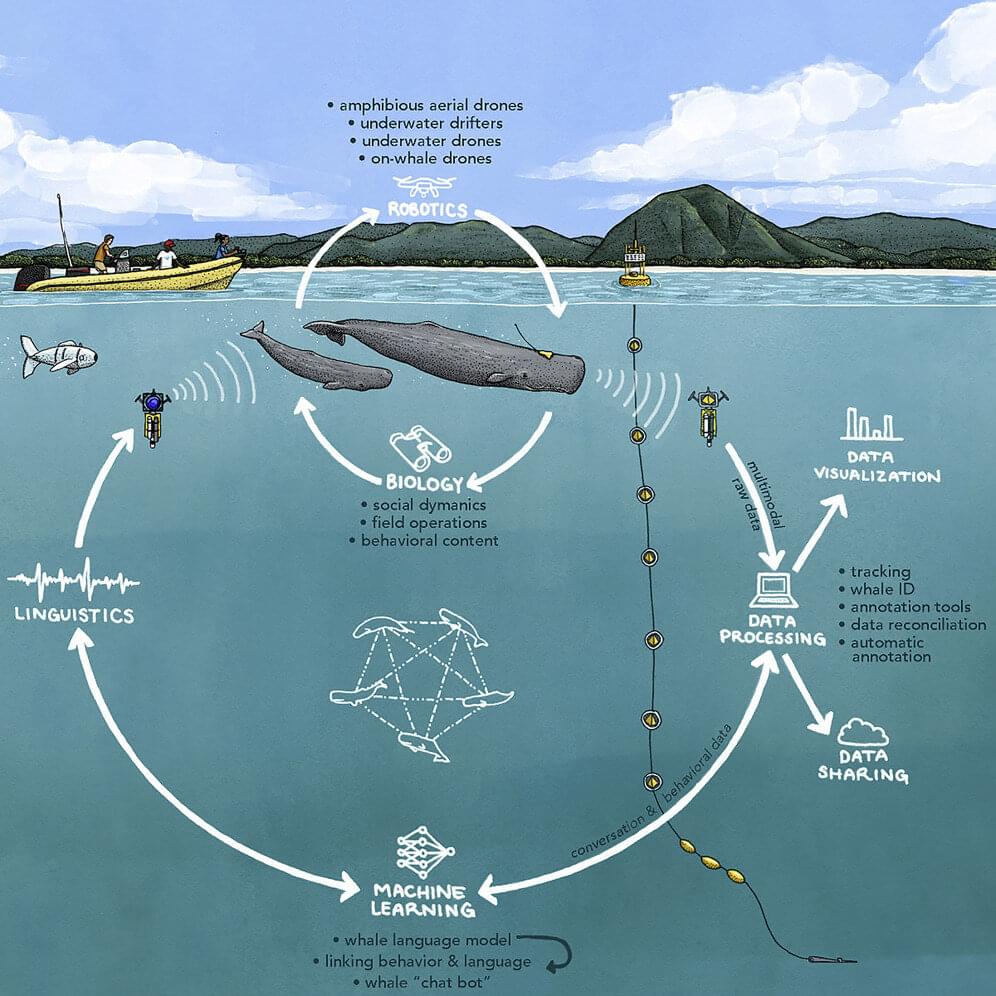Jul 16, 2022
A race to converse with, and save, the ocean’s brainiest eco-predators
Posted by Saúl Morales Rodriguéz in category: computing
In the 2016 sci-fi movie “Arrival,” a linguist and a theoretical physicist race against time to communicate with endangered extraterrestrial heptapods wishing to share their wisdom and technologies with the human race so it will survive and one day return the favor.
At the University of California, Berkeley, a real and more down-to-earth mission to decode an unknown form of communication is underway. Linguist Gasper Begus and computer scientist Shafi Goldwasser are part of an international team of researchers attempting interspecies communication with sperm whales by deciphering their deafening, 200-plus decibel clicking sounds, or codas.
They are among the key members of the Cetacean Translation Initiative (CETI), a newly launched, five-year multidisciplinary project aimed at cracking sperm whales’ Morse code-like communications off the Caribbean island of Dominica, to gain a deeper knowledge of the ocean’s brainiest predators and to preserve their habitat from further human disruption.
















